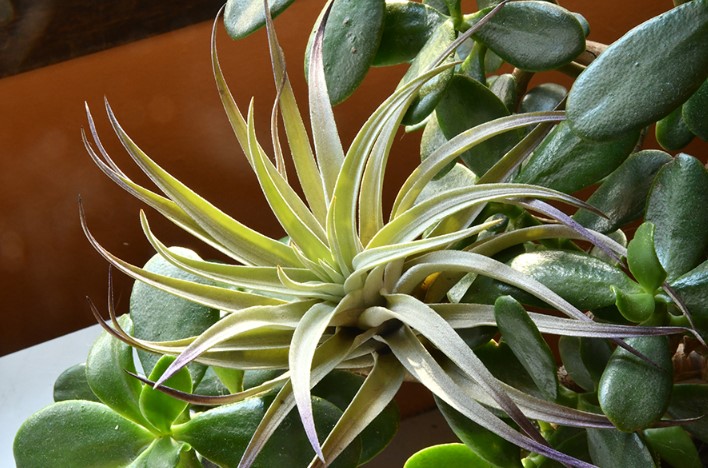Plant speciation is one of the main processes in the evolution of the botanical world and has a tremendous opportunity to affect human life. How would these enormous differences within the plant species entity help our health, economy, and ecology? Exploring this complex relationship between plants and humans brings one into a whole new world of interconnected opportunities beyond the surface of biodiversity.
Importance of Plant Speciation
Plant speciation is a process through which new plant species emerge and, in effect, increase biodiversity. Such diversification is important because it makes various ecosystems resistant and stable. Different species of plants perform different functions, all of which help in sustaining life forms that depend on their existence for survival, hence contributing to the health of habitats and ecosystems.
Speciation in plants is crucially important because it leads to a resilient response against environmental change and stresses. While evolving as different species, plants can adapt to various conditions that ensure their survival and may provide answers to problems like climate change. The genetic diversity due to speciation will definitely lead plants to thrive under different conditions and circumstances for the benefit of themselves and other organisms depending on them.
More importantly, the unique features and characteristics that come with the speciation of plants have a great deal to do with human life. Studying and working with newly evolved plant species provides a way for researchers and scientists to develop new medicines, further food supplies, and experiment with new agricultural practices. The more that is known about the process and meaning of plant speciation, the more opportunities are available in coming up with ways in which it could help both human health and sustainability.

Biodiversity and Ecosystem Health
Biodiversity plays a considerable role in the health and stability of ecosystems. With the immense number of plant species, ecosystems are allowed to flourish and evolve with changing conditions. Diverse plant species provide ecological services that benefit not only the plants themselves but a myriad of organisms dependent upon them for sustenance and habitat.
Ecosystem Resilience: Plant speciation contributes to the resilience of ecosystems by ensuring that various niches are occupied, reducing the risk of species loss impacting the overall functioning of the ecosystem. Each plant species has a unique role in nutrient cycling, soil stabilization, and water regulation, all of which are vital to ecosystem health.
Interconnectedness: The intricate web of plant species forms the basis of food webs, providing resources for various organisms. The loss of plant biodiversity can have cascading effects on the entire ecosystem, leading to imbalances and potential collapses in the long run. Preserving plant speciation is essential for the interconnectedness and stability of ecosystems.
Adaptation and Evolution: Diverse plant species offer a reservoir of genetic material that can be crucial for adaptation to changing environmental conditions. In a rapidly changing world, maintaining plant speciation ensures that ecosystems have the genetic diversity necessary to evolve and cope with challenges such as climate change, diseases, and invasive species, ultimately benefiting humans and the environment alike.
Medicinal Properties
Plants have diverse medicinal properties, largely useful to humans. Most of the plant species house elements that form compounds with therapeutic effects, hence serving as natural remedies for a wide variety of ailments. For example, the plant species Artemisia annua is known to synthesize artemisinin, which is a key component in treating malaria. This emphasizes that the need for plant speciation will be immensely valuable in terms of sources of medicine derived from nature.
Besides, the discovery and utilization of plant medicines have led to high contributions to pharmaceutical studies. Plants like the Cinchona pubescens from which quinine is derived have been quite instrumental in combating diseases like malaria. In addition to health improvement, medication from plants aids in the discovery of tamed drugs and treatments for numerous health disorders.
This, in turn, enlarges the pharmacopeia with a great variety of active compounds. Certain species, such as Taxus brevifolia, supplying the anticancer drug paclitaxel, illustrate the potential of plants in fighting destructive diseases. It is therefore essential that studies on plant diversity for medicine be pursued with the aim of conserving biodiversity and thus protecting valued resources for human health and well-being.
In other words, the research and application of the medicinal properties of plants reveal that an important nexus exists between biodiversity and human health. By concomitantly identifying and conserving plant diversity, it would be possible to obtain potentialities from nature’s pharmacopeia in such a way that sustainable solution-finding for present and future medical imperatives would become possible.
Food Security
Plant speciation is very important in human life because it helps in ensuring food security. There will be a variety of crops due to the large number of plant species. It enhances the variability in the genetic makeup of agricultural crops. Genetic diversity is crucial in the breeding of crops that are resistant to a number of diseases and pests, as well as other environmental stresses, thus securing food for the increasing population.
Speciation provides a means for plants to take their course of adjustment to changed climatic conditions. Regarding yields and the availability of food, there are high challenges posed by climate change on crop production. Plants will, through the process of speciation, be able to develop characters that can make them stand the changing climates, hence sustain agricultural resource uses and ensure food security.
Different nutritional benefits from different plant species enrich diets, while generally improving health. Human beings have a diversity of essential nutrients, vitamins, and antioxidants made accessible through the consumption of a diverse array of plant species for improved wellbeing and minimal risks of malnutrition-related health problems. It further emphasizes the need for the conservation of plant biodiversity for long-term food security and human health.

Crop Varieties and Genetic Diversity
Crop diversity and its genetic variability play an important role in the present-day roles of human food security and sustainability. This pool of plant genetic resources, when conserved, will provide sufficient scope for breeding new crop varieties resistant to diseases, pests, and climatic changes. This genetic variability enables the realization of more productive, nutritious plants with greater climatic tolerance.
Narrower crop reliance is reduced by the conservation and use of crop genetic diversity, minimizing crop loss risks and assuring food security. It is through various genetic traits of crops that plants grow to withstand certain stresses such as drought and disease, hence yielding better with sustainable agriculture.
Moreover, genetic diversity in crops acts as a spur to agricultural innovation by availing an abundant gene pool that can be tapped into for the purpose of developing novel varieties that possess most desirous qualities. Such quality attributes will range from nutritional value to taste and from shelf life to potential yield. Genetic diversity in varieties of crops holds the key to harnessing the future challenges by way of population growth, climate change, and altered farming practices. By valuing and conserving crop genetic diversity, we secure a more resilient and productive food system for future generations.
Adaptation to Climate Change
One of the important ways in which plant speciation benefits humans is through adaptation to climate change. How?
Enhanced Resilience: Different plant species evolving unique traits can better withstand climate variability, such as extreme temperatures and altered precipitation patterns.
Diverse Ecosystem Services: Variability in plant adaptations contributes to ecosystem stability, offering diverse benefits like carbon sequestration, water filtration, and erosion control.
Sustainable Agriculture: By cultivating a range of plant varieties naturally adapted to varying climatic conditions, agriculture becomes more resilient and sustainable in the face of climate fluctuations.
Economic Benefits
Plant speciation holds significant economic advantages for human societies, contributing to various sectors and enhancing overall financial prosperity. These benefits manifest in several key ways:
- Increased agricultural yield and quality: Diversified plant species offer a rich array of genetic resources, leading to the development of resilient crop varieties that withstand pests, diseases, and adverse environmental conditions.
- Sustainable agricultural practices: The genetic diversity resulting from speciation enables farmers to cultivate a wide range of crops, promoting sustainable farming techniques and reducing reliance on chemical inputs.
- Commercial opportunities: Unique plant species with valuable characteristics can be harnessed for commercial purposes, such as pharmaceuticals, cosmetics, and food products, stimulating economic growth and innovation.
- Ecotourism and conservation: Preserving diverse plant species attracts tourists, creating revenue streams through activities like botanical tours and nature-based experiences, while also fostering conservation efforts to safeguard these resources for future generations.
Cultivation and Conservation Attempts
Plant speciation utilization for human benefit greatly depends on cultivation and conservation. By using selective cultivation methods, the botanists are able to ensure that rare plant species are multiplied and preserved in order to save their genetic material and their survival in different ecosystems. The conservation practices are very important to preserve plant populations with medicinal properties or plants that possess other unique characteristics valuable for possible future research and development.
Farmers can take this even one step further by developing plant species that are resilient against environmental conditions, such as a changing climate. Plant speciation can support the application of a wide range of varieties to adapt crops to changed environmental circumstances, ensuring food security through diversification from very few staple crops. Sustainable agriculture with plant speciation applied equates to higher yields and better nutrition, economic certainty for farming communities.
Apart from that, there should be a conservation of nature, especially where these unique plants are found growing, so that ecological balance remains undisturbed. This will help in preserving not only the endangered plant species but also all other organisms who depend on these plants for life. The time taken to learn an appreciation for the importance of plant speciation to conservation can only lead to some far-reaching and sustainable resource management practices which are good for humans and will also be good for the environment over a long period.

Implications for the Future
Future Implications:
In as much as environmental change is taking place at a rapid pace, and considering new challenges that face ecosystems on a continual basis, profound will be the future implications of plant speciation for humans. The diversified adaptation to new environments keeps going on and will have to go on for the plant species. Resistance against diseases and pests will be of high value in these times when the climate changes and pathogens emerge. This enhanced diversity provides a reservoir of genetic resources that may be tapped for the development of resilient crops that are nutritious and yield more.
More importantly, in a world challenged for food security, the genetic diversity generated by speciation is one of the irreplaceable means of protection against agricultural productivity. Estimation and conservation of wild plant species with particular traits, like resistance to drought or disease, open the routes to breeding programs which would result in crops resistant to the risks of change in climate conditions. Although this is in itself assurance of stability in food supply, the dependence on chemical inputs for crop cultivation will be reduced hence heading towards sustainable agriculture.
The future implications of plant speciation will also stretch beyond agriculture in that the numerous bioactive compounds in some of the unique plant species have been utilised in developing new pharmaceuticals and nutraceuticals. The study of plant speciation also provides the means for further research into the medicinal properties of different plants, which will help humankind in the form of pharmaceutical benefits. Acceptance of the future of plant speciation requires not just a call for conservation but making good use of genetic variability within nature to meet complex challenges of humanity in coming years.
Plant speciation is among the most important ways in which new plant species possessing unique genetic attributes and characteristics are evolved. Such biodiversity enhances ecosystem health in many different aspects, including the assurance of resistance against environmental changes and the provision of habitats for diverse living organisms. Similarly, speciation has a great deal of pharmaceutical importance owing to discoveries in the use of new plant compounds for medicinal applications.
Moreover, food security is enhanced by plant speciation through the development of crop varieties from genetically diversified backgrounds that are resistant to pests, diseases, and abiotic stresses. This genetic variation allows them to adapt to altered climatic conditions and ensures that food production does not fluctuate due to environmental changes. Economically, plant speciation leads to new agricultural methodologies, which further provokes innovation, hence opening up economic avenues within the agricultural sector.
This brings into focus the importance of speciated plant cultivation and conservation for the continuity of genetic diversity and sustainable ecosystems. In fact, the promotion of cultivation for various plant species along with their conservation will go a long way in preserving the valuable genetic resources of the future and utilizing the benefits accruing from plant speciation toward long-term welfare in mankind and the environment.
Speciation in plants can be extremely beneficial to humanity, whether it’s through improvement in biodiversity or delivering medicinal properties that are of very high importance. Plant speciation has played a significant role in the health of our ecosystem and our overall well-being. We will look forward with anticipation to seeing further cultivation and conservation for the complete spectrum of benefits which plant speciation has to offer to humans.
During times of environmental adversity and increasing demands for sustainability, this complex interrelationship between plant speciation and human well-being should give hope for a better future. Genetic diversity, climate change adaptation, and economic benefits owing to diverse plant species all form one sustainable pathway to a resilient and prosperous future for nature and society alike.
